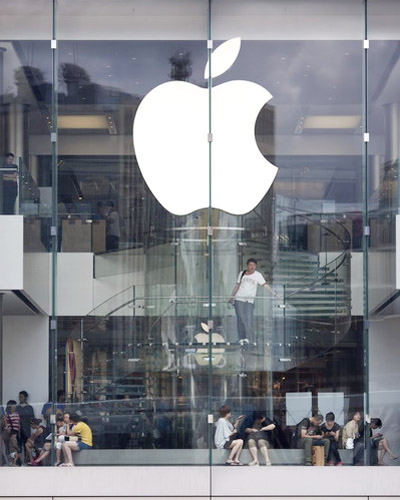Nov 18th, 2012 by Shawn Li
Chris MacDonald’s blog post ” Target: Is store a person?” on Canadian Busness- The Business Ethics section

According to Chris MacDonald, the worker union of Zellers’ argument of Target should be responsible for Zeller’s current employees as they are replacing Zellers signs with their own is not valid enough in protecting their workers. It is a fact that Target is not purchasing Zellers from HBC but rather just taking over the lease of Zellers’ locations; therefore, it doesn’t have the legal responsibility to continue hiring the Zellers’ employees since it is HBC’s decision to close down Zellers stores and lay off their workers.
I agree with MacDonald’s point of view mostly. However, after taking morality and ethics into considerations, my heart actually leans towards the workers’ side. Although there’s no legal issue if Target decides to hire brand new employee teams for each location, it is to their best interest to actually continue employing most Zellers’ workers. First of all, experienced in-store employees of Zellers need very minimal training since they are used to work at the location already. The savings on time, money, and resources from training can significantly lower the start-up cost for each store. Secondly, it helps Target to build up a positive public image towards Canadians. For it is difficult to enter a brand new market, if Target can keep the experienced employees who have already build up friendly relationships with local customers, it will be a great asset to the company. On the other hand, Target does need to be careful with its employee selections as some old workers from Zellers have already lacked motivations and missed the sense of responsibility.
Thus, I agree with MacDonald’s point that the argument raised by the workers union of Zellers may get rejected. However, I feel it will also be Target’s best interest to keep most of the experienced and responsible employees from Zellers. Hence, the debate on the topic will still carry on as long as Target has no further responses towards this issue.

Posted in Uncategorized | No Comments »
Nov 13th, 2012 by Shawn Li
Kate Wen’s Blog Post
Just as my classmate Kate has indicated in her blog post, customization is a brilliant marketing strategy that businesses are adopting nowadays to increase the uniqueness of their products which hopefully will contribute to an ultimate rise in sales of the firms.
It is true that customization does not only satisfy customers but also benefit the company. However, what I am concerning is what degree of customization is acceptable and the problems involved when business lose its originality because of over-customization.

It may seem interesting that customers are able to design their own drink by mixing several Coke-Cola products. However, is it a real selling point that can last long? Mixing several drinks may come up with thousands of new varieties of drinks, but after all people will still stick with either Coke or Sprite. Customers purchase certain goods from a business because of the originality that product has with the brand. If a customer can customize a whole new good with the company, then why doesn’t he/she just DIY on his/her own? It’s cheaper.
In my opinion, a limitation to customization is needed for all businesses that tend to carry out this strategy. Many businesses are already aware of the importance of limited customization. For example, Louis Vuitton only allows customers to embed their names on bags rather than customizing designs; Timberland only authorizes purchasers to customize the body and bottom of their boots with limited combinations of color. None of these brands allow customers to customize the original design of the products because that’s what they are selling for.
To conclude, customization can be an additional advantage of a company. But it should not become the main selling base of the products of a business.

.jpg)
Posted in Uncategorized | No Comments »
Nov 13th, 2012 by Shawn Li
Joshua’s Orginal Blog
As my classmate Joshua has mentioned in his blog post, it is true that bicycle is making automobile more elastic and causing an increase in the threat of substitute part of the automobile industry.
I mostly agree with the analysis of this blog since it well demonstrates several key ideas of our course such as the Porter’s 5 Forces, price elasticity, and the idea of substitutes. However, I have some different opinions on his further look on the issue in America. Joshua has stated that people are less willing to buy bicycles in U.S. because of less financial incentive and further distances to commute. It is fairly true. But in my opinion, bicycle is less of a substitute to cars in America is because of not only the economic and geographical outlook of U.S. but also the traditional mindset of its people.
China is similar to US in some degree since it is large in size and has increasing affordability of automobiles. However, people there tend to ride bikes. It is easy to see thousands of people biking home after work in many Chinese cities. Why? Because Chinese people have a stronger bond with bicycles while cars have only become more popular in the past decade. It is true that bicycle was not invented by Chinese, but for almost a century it has been acting as a necessity for almost every Chinese family. On the other hand, people in the US have been driving automobiles for centuries and the culture of riding a bike disappeared long ago. People there in nature trust cars more than bikes. And that nature is hard to reverse which additionally contributes to the less threat of substitute of bicycles towards automobiles in America.

Posted in Uncategorized | No Comments »
Nov 4th, 2012 by Shawn Li

Advertisements can come in varieties of types. TV, radio, websites, and mobile network are all different kinds of ways for companies to advertise on. However, as internet becomes more developed, another way of advertising has become popular.
10s, 20s, 30s…. the increasing amount of waiting time before watching online videos has been pissing people off. Personally, I feel that way too. Waiting for videos to start is just a total waste of time.
However, that break is actually a window of time for businesses to advertise. This new area of “Web-video advertising” has been growing rapidly in the past few years. Video game companies, online shopping websites, and many other types of businesses have begun to insert advertisements before online videos start.
According to the China Daily, third-quarter revenues of China’s online video advertising reached $423.19 million, a 77.9 percent year-on-year increase. This is a shocking percentage of increase. The useless waiting time before has now become a fabulous business opportunity that online video websites like Youtube, Youku, and Tudou can earn a large amount of profit by selling Web-video advertising spots.
Because people like to watch online videos, Web-video advertising would seem more common and can still have a enormous potential to grow.
http://europe.chinadaily.com.cn/business/2012-11/02/content_15867936.htm

Posted in Uncategorized | No Comments »
Oct 17th, 2012 by Shawn Li
In the class on Tuesday, Instructors introduced us a whole concept called Social Entrepreneurship which is a kind of entrepreneurship that its goal is not maximizing profit but solving a social issue through an operation of an enterprise. Social Entrepreneurs run their businesses for the better being of society. Social Entrepreneurship has become increasingly popular across the globe. Particularly in China, Social Entrepreneurs are striving to gain recognitions from their local communities.

Here, I want to present a social enterprise in China called Canyou Group. Its founder and hemophiliac Zheng Weining established the business which is involved with software development, cartoons and animation, and e-commerce in providing job opportunities and living support for those with disabilities. It currently has 3,700 employees across the country and is looking forward to further growth in the future. In addition, Canyou is also a business incubator that helps the foundation of other social enterprises that enable the disabled to gain awareness and make full use of their potential. Just as what Zheng said “Because we are disabled, we need to be more beautiful,” if people with disabilities get chances, they can be surprisingly good with their jobs because it shows the value of themselves.

China Daily News:
http://usa.chinadaily.com.cn/epaper/2012-09/06/content_15739342.htm
Posted in Uncategorized | No Comments »
Oct 8th, 2012 by Shawn Li

Domestic or imported, it doesn’t seem to be a huge issue in our modern society. People get products that are Made in China or Made in Japan all the time. The utility of a product seems way more essential than where its origin is.
However, a few months ago, an issue regarding the sovereignty of some islands between China and Japan has caught many business experts’ attentions. According to the Globe and Mail, many Japanese auto makers are suffering huge downfalls in sells as Chinese citizens have started to buy less Japanese made goods.
People around the world are curious about this silent boycott involving Chinese consumers and Japanese suppliers. Why does the nationality of goods suddenly become so sensitive? Don’t people often ignore the origin and focus on the utility of a product?
Perhaps, business is never that simple. A company may never be able to accurately predict the success of its business because customers’ exact minds are unpredictable. A political issue between nations may result in an earthquake in the business world. However, it is up for the businesses to figure out ways to minimize the effect of these unpredictable external crises.
http://www.theglobeandmail.com/report-on-business/international-business/asian-pacific-business/japanese-auto-makers-see-plunge-in-china-sales-after-island-row/article4591249/
Posted in Uncategorized | No Comments »
Oct 1st, 2012 by Shawn Li

In order for geographical expansion to happen, some brands decide to diverse their products line and create more local fashion products to satisfy the needs of different countries; some brands choose to have huge price differences between their stores located in different areas to attract customers from all classes.
However, “fast-fashion” brands like H&M of Sweden, Zara of Spain… are all keen on a very similar strategy which is same style and price for everyone. The designs of these mega brands are suitable to every market around the world. There’s no such thing as a special design for a single country. The fact that all stores have similar products makes different areas have similar prices as well. Prices remain relatively constant across the globe. Just like McDonalds sell similar products everywhere and people accept them as what they are. Customers across the globe have also been accepting the concept of “Democratic style and price” as a classic H&M style hoodie is well sold almost everywhere.
Thus to learn from H&M, in order for a business to expand worldwide, diversify of product line in trying to fit into the local culture is not necessarily needed.
http://europe.chinadaily.com.cn/business/2012-10/01/content_15794529.htm
Posted in Uncategorized | No Comments »
Sep 27th, 2012 by Shawn Li

For the issue of selling unauthorized iPhones is becoming increasingly severe in the past few years, new purchase restrictions were placed by Apple on its latest iPhone 5 in fighting against unauthorized resellers. In Canada, which also has a large gray market for unlocked iPhones, many resellers claimed that they were shocked by the new system which requires specially designated Apple ID and a credit card to order and limits the number of the devices a single customer can buy to be no more than two. It’s no longer just simply lining up, the new purchase restrictions definitely stopped many resellers from making a huge profit as a 16G iphone 5 may easily be sold at $1000 in China. However, the issue of gray market is still severe since resellers begin seeking ways to go around the restrictions. According to my personal experience, many of my friends were hired by those unauthorized resellers. They just need to simply purchase it and give it to resellers; then they can earn at least $100 profit as an exchange. Thus, although Apple’s new restrictions are a brilliant start in fighting against gray market, but further considerations are absolutely needed.
http://europe.chinadaily.com.cn/business/2012-09/21/content_15773048.htm
Posted in Uncategorized | No Comments »
Sep 25th, 2012 by Shawn Li

Ever since 2008 Beijing Olympics, many private businesses in major Chinese cities began to seize the opportunity of Bicycle Rental Service due to the overwhelming positive reputation it gained during the Olympic times. Since bikes do not drink gasoline and releases no pollution to the environment, it seems to be a better option to choose bikes over cars while traveling in cities.
However, as an increasing number of rental bike booths begin to spread across china, some negative sides of this service are getting revealed to the society.
One factor affecting the service is that it earns really low profit. Although people are getting used to rent bikes, most of them simply ride less than an hour per rent which means no payment is required after they have purchased a membership card. Businesses cannot have enough income to cover their cost.
Another factor is that the reliance on cars still exists among residents in China. Most people still prefer cars as driving shows their superior social status. Thus, still not many people use the service.
After all, the Bicycle Rental Service is eco-friendly. But if there’s no profit, who is going to run it?
http://www.chinadaily.com.cn/business/2012-09/24/content_15776608.htm
Posted in Uncategorized | No Comments »
Sep 13th, 2012 by Shawn Li

Ajisen Ramen is one of the largest noodle chains in Asia. It is well-known for its nutritious pork bone soup noodles. In Ajisen’s advertisement, It claims its soup was prepared by boiling pork bones for 20 hours and is rich in calcium 4 times that of milk and 10 times that of ordinary meat dishes. Many people came to Ajisen because of its soup. However, it was proven false by the Chinese authorities in Aug.2011. It was later revealed that the soup was made by diluting concentrated bag soup into water. Ajisen’s advertisement was only valid based on its report of its concentrated soup bag. Its actual soup is diluted 36 times which cannot be called nutritious at all. The Ajisen business was hurt badly in Asia by the crisis. Customers no longer look forward to Ajisen soup because they have lost trust towards the company. Therefore, the Ajisen Ramen scandal is about a food chain lying about the ingredient of its main food product which had misled its customers to think the product is nutritious but it’s actually not. Ajisen betrayed customers’ trust, sneak through the leak of authorities, and utilized its popularity of the brand to overstate its product in attracting customers.
http://english.cntv.cn/program/china24/20110803/114447.shtml
Posted in Uncategorized | No Comments »




.jpg)









